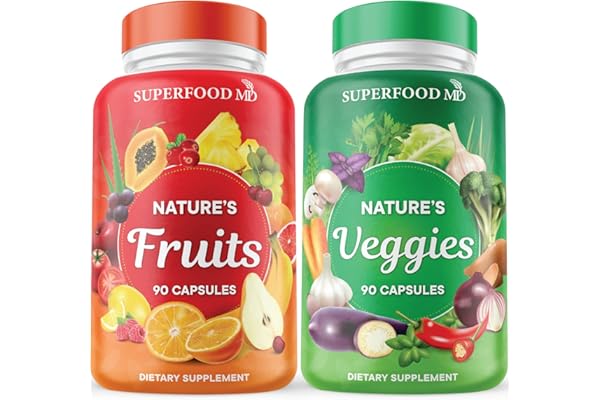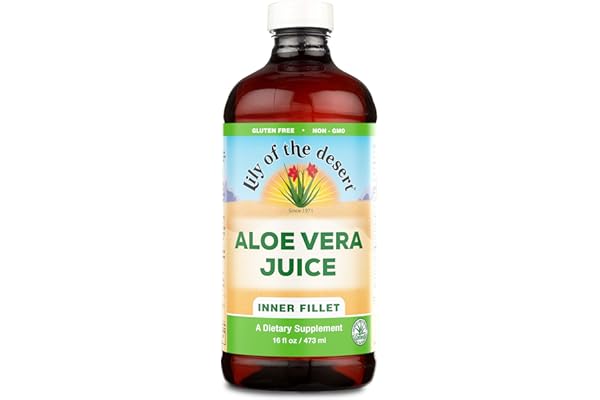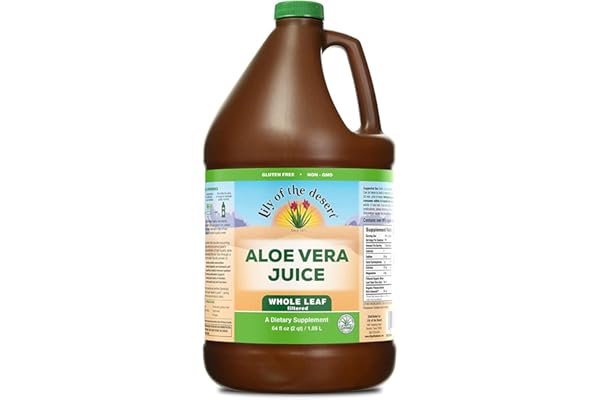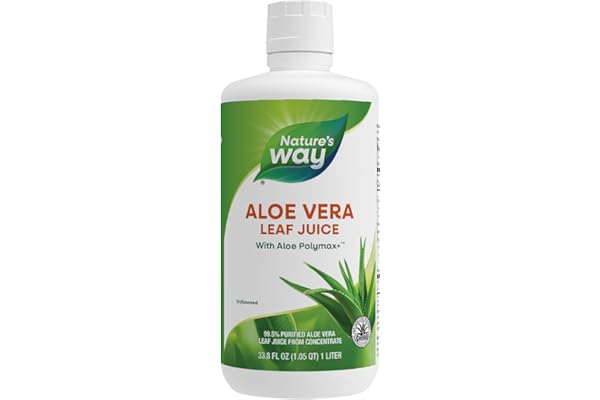What Are the Benefits of Aloe Vera? A Complete Guide
Aloe vera stands as one of nature’s most versatile healing plants, offering a wide range of benefits that have made it a staple in medicine and skincare for thousands of years. This thick-leaved succulent contains over 75 active compounds, including vitamins, minerals, enzymes, and amino acids that work together to provide therapeutic effects both topically and internally.

The benefits of aloe vera include accelerating wound healing, reducing skin inflammation, improving digestive health, managing blood sugar levels, and providing antibacterial and antioxidant protection. Research shows that aloe vera can reduce burn healing time by around 9 days compared to conventional treatments while also preventing infections and reducing inflammation.
Whether applied directly to the skin or consumed as juice, this natural remedy offers scientifically-backed health benefits that extend far beyond its traditional use for sunburns. From dental health to diabetes management, aloe vera continues to prove its value as a multifaceted therapeutic plant.
Key Takeaways
- Aloe vera accelerates wound healing and provides effective treatment for burns, cuts, and various skin conditions through its antibacterial and anti-inflammatory properties
- The plant supports digestive health and may help regulate blood sugar levels when consumed internally as juice or supplements
- Proper usage and quality matter significantly, as some forms of aloe vera can cause side effects or safety concerns when used incorrectly
Nutritional Profile of Aloe Vera

Aloe vera contains essential vitamins, minerals, and bioactive compounds that contribute to its therapeutic properties. The plant’s gel provides polysaccharides, enzymes, and antioxidants that support various health functions.
Key Vitamins and Minerals in Aloe Vera
Aloe vera gel contains several important vitamins that support bodily functions. Vitamin C serves as a primary antioxidant, while vitamin E protects cell membranes from oxidative damage.
The plant provides B-complex vitamins including B1, B2, B3, B6, and B12. These vitamins support energy metabolism and nervous system function.
Essential minerals found in aloe vera include:
- Calcium – supports bone health and muscle function
- Magnesium – aids in enzyme reactions and muscle relaxation
- Zinc – promotes wound healing and immune function
- Potassium – regulates fluid balance and blood pressure
- Iron – supports oxygen transport in blood
Trace amounts of chromium, copper, and manganese provide additional nutritional value. These minerals work together to support various metabolic processes in the body.
Polysaccharides, Enzymes, and Bioactive Compounds
Polysaccharides represent the most significant bioactive components in aloe vera gel. Acemannan, the primary polysaccharide, demonstrates immune-supporting and wound-healing properties.
The gel contains various enzymes including amylase, catalase, and lipase. These enzymes aid in breaking down sugars, fats, and proteins while supporting digestive processes.
Aloe vera provides amino acids including both essential and non-essential varieties. Eight essential amino acids cannot be produced by the body and must come from dietary sources.
Saponins act as natural cleansing agents with antimicrobial properties. These compounds contribute to aloe vera’s ability to fight bacteria and fungi.
Additional bioactive compounds include lignins, which enhance penetration of other nutrients into skin tissues.
Antioxidant and Anti-Inflammatory Properties
Aloe vera demonstrates significant antioxidant properties through multiple compounds. Vitamins C and E neutralize free radicals that can damage cells and tissues.
Flavonoids and phenolic compounds provide additional antioxidant protection. These compounds help reduce oxidative stress throughout the body.
The plant exhibits anti-inflammatory properties through various mechanisms. Aloe vera contains compounds with antibacterial, antiviral, and antiseptic properties that help reduce inflammation.
Acemannan and other polysaccharides modulate immune responses and reduce inflammatory markers. This action helps explain aloe vera’s effectiveness in treating skin conditions and wounds.
The combination of antioxidants and anti-inflammatory compounds makes aloe vera particularly effective for topical applications. These properties work synergistically to promote healing and protect against cellular damage.
Topical Benefits for Skin Health

Aloe vera gel provides scientifically-backed benefits when applied directly to the skin, including accelerated healing of burns and wounds, reduction of inflammatory skin conditions, and enhancement of the skin’s structural proteins. These therapeutic effects stem from the plant’s unique combination of vitamins, minerals, enzymes, and bioactive compounds.
Sunburn Relief and Skin Soothing Effects
Aloe vera gel contains cooling compounds that provide immediate relief for sunburned skin. The gel’s anti-inflammatory properties help reduce redness, swelling, and pain associated with UV damage.
Research shows that topical application of aloe vera can reduce inflammation and soothe irritated skin through its polysaccharides and glycoproteins. These compounds inhibit inflammatory mediators and promote faster recovery.
The gel forms a protective barrier on damaged skin while delivering moisture to dehydrated cells. This dual action prevents further moisture loss and creates optimal conditions for healing.
Key soothing benefits include:
- Immediate cooling sensation upon application
- Reduced skin temperature in burned areas
- Decreased pain and itching
- Prevention of peeling and scarring
For maximum effectiveness, users should apply pure aloe vera gel multiple times daily to affected areas. The antimicrobial properties also help prevent secondary infections in compromised skin.
Wound Healing and Dermatitis Support
Aloe vera accelerates wound healing through multiple mechanisms that support cellular repair and regeneration. The gel contains growth factors that stimulate fibroblast proliferation and enhance tissue formation.
Studies demonstrate that aloe vera’s wound healing properties work by increasing collagen synthesis and improving blood circulation to injured areas. This promotes faster closure of cuts, scrapes, and minor wounds.
The plant’s antimicrobial compounds help prevent bacterial infections while maintaining a moist healing environment. This combination reduces healing time and minimizes scarring risk.
Wound healing benefits:
- Faster tissue regeneration
- Reduced infection risk
- Minimized scar formation
- Enhanced blood flow to healing areas
For dermatitis and eczema, aloe vera’s anti-inflammatory effects provide relief from symptoms like itching, redness, and scaling. Regular topical application can help manage chronic inflammatory skin conditions effectively.
Collagen Production and Skin Elasticity
Aloe vera stimulates collagen production through its vitamin C content and specific amino acids that serve as collagen building blocks. Increased collagen synthesis improves skin firmness, elasticity, and overall texture.
The gel’s antioxidant properties protect existing collagen from free radical damage while promoting new collagen formation. This dual protection helps maintain youthful skin appearance and prevents premature aging signs.
Regular skincare routines incorporating aloe vera gel can measurably improve skin elasticity within weeks of consistent use. The plant’s natural moisturizing factors also help maintain optimal hydration levels for healthy collagen function.
Elasticity improvements include:
- Increased skin firmness
- Reduced fine lines and wrinkles
- Enhanced skin texture and smoothness
- Better moisture retention
The gel works synergistically with other skincare ingredients, making it an effective addition to anti-aging routines. Its gentle nature allows for daily application without irritation concerns.
Aloe Vera for Hair and Scalp Care
Aloe vera gel contains enzymes, vitamins, and antimicrobial compounds that address common scalp issues like dandruff and inflammation. The plant’s nutrients and moisturizing properties also create conditions that may support healthier hair growth.
Scalp Health and Dandruff Reduction
Aloe vera’s antimicrobial properties help combat the microorganisms that contribute to dandruff and scalp irritation. The gel contains natural enzymes that remove dead skin cells from the scalp, preventing the buildup that leads to flaking.
The anti-inflammatory compounds in aloe vera gel reduce scalp inflammation and soothe irritated skin. This makes it effective for treating conditions like seborrheic dermatitis and general scalp sensitivity.
Key scalp benefits include:
- Reducing inflammation and redness
- Controlling excess oil production through natural lipase enzymes
- Moisturizing dry, flaky areas
- Balancing scalp pH levels
For dandruff treatment, users can apply pure aloe vera gel directly to the scalp 2-3 times daily. Aloe vera with yogurt creates an effective weekly mask that combines the plant’s exfoliating properties with yogurt’s natural acids.
The cooling sensation of aloe vera gel provides immediate relief from itching and irritation. Regular use helps maintain a healthier scalp environment.
Supporting Hair Growth
Aloe vera contains vitamins A, B1, B2, B6, C, and E, along with minerals like calcium and folic acid that nourish hair follicles. These nutrients help strengthen hair fibers and promote faster, stronger growth.
The gel’s enzymes improve blood circulation when massaged into the scalp, delivering more oxygen and nutrients to hair roots. This enhanced circulation creates better conditions for hair growth.
Growth-supporting properties:
- Collagen production: Helps secure hair strands to the scalp
- Follicle cleansing: Removes buildup that can block hair growth
- Strand strengthening: Reduces breakage and brittleness
- Moisture retention: Maintains hair elasticity
Weekly aloe vera hair masks provide hydration and improve scalp health, creating optimal conditions for growth. The plant’s natural moisture content prevents the dryness that can lead to hair breakage.
While scientific studies on aloe vera’s direct effects on hair growth remain limited, its proven benefits for scalp health create a foundation for healthier hair development.
Internal Benefits: Aloe Vera Juice and Digestion
Aloe vera juice provides several digestive benefits through its anti-inflammatory compounds and natural enzymes. The juice contains anthraquinones that create laxative effects, though these compounds also present potential safety concerns.
Aloe Vera Juice Benefits and Nutritional Value
Aloe vera juice contains antioxidants and vitamins that support digestive function. The juice provides vitamin C, which promotes healthy digestion, along with polyphenols that fight oxidative stress.
Key nutritional components include:
- Antioxidants like polyphenols
- Digestive enzymes
- Vitamin C
- Minerals and trace elements
The juice offers low-calorie hydration compared to other beverages. Drinking aloe vera juice provides hydration with fewer sugars than typical fruit juices or sports drinks.
Enzymes in aloe vera juice help break down sugars and fats. This enzymatic activity makes nutrient absorption easier for the digestive system.
Digestive Health and Relief from IBS
Aloe vera juice may improve symptoms of inflammatory bowel disease through its anti-inflammatory properties. The juice’s compounds reduce inflammation in the gastrointestinal tract.
Digestive benefits include:
- Heartburn relief – May reduce acid reflux symptoms
- Constipation treatment – Natural laxative properties
- Anti-inflammatory effects – Reduces gut inflammation
People with irritable bowel syndrome may experience symptom relief. The anti-inflammatory compounds in aloe vera juice can soothe digestive tract irritation.
The juice helps with acid reflux and GERD symptoms. Aloe vera juice may relieve heartburn by improving overall digestive function and reducing inflammation.
Laxative Effects and Potential Risks
Aloe vera juice contains anthraquinones, compounds that create strong laxative effects. These substances are found in the outer portion of the aloe plant, known as aloe latex.
The compound aloin is responsible for the most potent laxative properties. The FDA required manufacturers to remove aloe latex from over-the-counter laxative products due to safety concerns.
Potential risks include:
- Diarrhea and cramping
- Electrolyte imbalances
- Liver damage with long-term use
- Drug interactions
People should choose decolorized and purified aloe vera juice products. Non-decolorized varieties contain higher concentrations of potentially harmful compounds.
The recommended daily amount is up to 2 tablespoons. Starting with smaller amounts allows individuals to assess their tolerance before increasing consumption.
Potential Health Benefits Beyond Skin and Digestion
Aloe vera contains bioactive compounds that may influence immune function, help regulate blood sugar levels, and provide dental health benefits through its antibacterial and antiviral properties. Research suggests the plant’s anti-inflammatory effects extend to multiple body systems.
Role in Immune Function and Inflammation
Aloe vera possesses antiviral and anti-inflammatory properties that may support overall immune function. The plant contains polysaccharides and other bioactive compounds that interact with the body’s immune system.
These compounds can help modulate inflammatory responses throughout the body. The anti-inflammatory effects may benefit conditions involving chronic inflammation, though more research is needed to fully understand these mechanisms.
Studies indicate that aloe vera’s immunomodulatory properties stem from its ability to influence cytokine production. This interaction with immune signaling molecules suggests potential applications for inflammatory conditions.
The plant’s antioxidant content also contributes to its immune-supporting properties. These antioxidants help protect cells from oxidative stress, which can compromise immune function when left unchecked.
Blood Sugar Regulation
Research shows aloe vera may help manage blood sugar levels in people with prediabetes and type 2 diabetes. The plant appears to enhance insulin sensitivity, potentially improving glucose metabolism.
A 2021 review found moderate to high quality evidence supporting aloe vera’s effects on blood sugar management in diabetic patients. However, the study quality varies across research.
Blood sugar levels may benefit from aloe vera’s ability to slow glucose absorption in the digestive tract. This effect could help prevent post-meal blood sugar spikes.
Scientists caution that current evidence, while promising, does not yet support aloe vera as a primary diabetes treatment. People with diabetes should consult healthcare providers before using aloe vera supplements.
The mechanisms behind these effects likely involve multiple pathways, including improved cellular glucose uptake and enhanced pancreatic function.
Dental Health and Mouthwash Applications
Aloe vera mouthwash demonstrates effectiveness comparable to conventional dental products for reducing dental plaque and gingivitis. Clinical studies support its use as a natural oral care alternative.
Research with 152 school children found that aloe vera mouthwash reduced plaque and gingivitis as effectively as chlorhexidine-based products after four weeks of use. The natural alternative also decreased harmful bacteria levels.
Dental plaque formation occurs when bacteria accumulate on teeth surfaces. Aloe vera’s antibacterial properties help inhibit this bacterial growth, particularly against Streptococcus mutans.
The plant also accelerates healing of mouth ulcers and canker sores. Studies show faster recovery times compared to other treatments, with reduced pain and inflammation.
A 2024 clinical trial demonstrated that aloe vera mouthwash could reduce severity of radiation-induced oral mucositis in cancer patients. This suggests broader applications for oral health maintenance.
Safety Considerations and Proper Use
Understanding product quality differences and appropriate dosing helps maximize aloe vera’s benefits while minimizing potential risks. Different forms of this succulent plant require specific usage guidelines and professional oversight.
Choosing the Right Aloe Vera Products
Topical products offer the safest option for most users. Aloe vera gel from reputable manufacturers undergoes purification processes that remove potentially harmful compounds.
Pure aloe vera gel should contain minimal additives. Check labels for alcohol, fragrances, or synthetic ingredients that may cause skin irritation.
Avoid non-decolorized whole-leaf extracts which may be associated with cancer risk according to animal studies. These products contain aloin, a compound that hasn’t been properly filtered out.
Fresh gel extracted directly from aloe leaves provides another safe option. Cut leaves from mature plants and extract the clear gel while avoiding the yellow latex near the skin.
Oral products require extra caution. Aloe vera juice and supplements vary significantly in quality and concentration. Some contain aloe latex, which can cause stomach cramps or diarrhea.
Look for products specifically labeled as “inner leaf” or “decolorized” when selecting oral aloe vera products.
Recommended Dosage and Consulting a Registered Dietitian
Topical applications typically involve applying a thin layer of aloe vera gel to affected skin areas 2-3 times daily. Start with small amounts to test skin sensitivity.
For wound care, clean the area before applying gel. Cover with a sterile bandage if needed.
Oral dosing varies significantly by product and intended use. Most studies use doses ranging from 100-300mg of aloe vera extract daily, but product concentrations differ widely.
A registered dietitian can provide personalized guidance on appropriate dosing based on individual health conditions and medications. They understand how aloe vera may interact with blood sugar medications or affect digestive conditions.
Consult healthcare providers before using aloe vera internally, especially with existing medical conditions. Oral aloe vera may affect blood sugar management and could interfere with diabetes medications.
Pregnant and breastfeeding women should avoid oral aloe vera products due to limited safety data.
Frequently Asked Questions
Aloe vera offers multiple therapeutic benefits including antimicrobial properties for skin conditions, digestive support through anti-inflammatory compounds, and accelerated healing through enhanced collagen synthesis. The plant’s gel contains over 75 active compounds that contribute to hydration, hair follicle health, and immune system modulation.
How can aloe vera improve skin health?
Aloe vera contains antibacterial, antiviral, and antiseptic properties that help treat various skin conditions. The gel inhibits the growth of harmful bacteria like Staphylococcus aureus and Pseudomonas aeruginosa.
Studies show aloe vera can improve skin barrier function, moisture retention, and elasticity. The plant’s compounds also increase collagen content in the skin.
Topical application helps reduce inflammation and provides cooling relief for sunburns and minor skin irritations. The gel’s natural moisturizing properties make it effective for dry or damaged skin.
What are the digestive benefits of consuming aloe vera?
Aloe vera latex contains aloin, a compound with established laxative effects that can help relieve constipation. However, the FDA removed aloe latex from over-the-counter medications in 2002 due to safety concerns.
Oral consumption may cause stomach cramps or diarrhea in some individuals. There have been reports of liver injury associated with certain oral aloe vera products.
The anti-inflammatory properties of aloe vera may help soothe digestive tract irritation. However, people should consult healthcare providers before using aloe vera for digestive issues.
Is aloe vera effective in wound healing and how does it work?
Research indicates that aloe vera is an effective topical treatment for first and second-degree burns. Studies found it can reduce healing time by approximately 9 days compared to conventional treatments.
The plant’s antimicrobial properties help prevent infections during the healing process. Aloe vera also reduces itching and inflammation around wound sites.
The gel promotes collagen synthesis and cell regeneration. While evidence for other wound types remains inconclusive, research shows promising results for various healing applications.
Can aloe vera juice support hydration and how?
Aloe vera plants store water in their thick, fleshy leaves through specialized tissue. This water-filled gel contains electrolytes and minerals that can contribute to hydration.
The natural gel provides both internal and external moisturizing benefits. When applied topically, it helps maintain skin moisture levels.
Consuming aloe vera juice may provide additional fluid intake, though it should not replace regular water consumption. The juice contains various nutrients that support overall hydration status.
In what ways can aloe vera contribute to hair care?
Aloe vera’s moisturizing properties can help condition dry or damaged hair. The gel contains amino acids and vitamins that nourish hair follicles.
The plant’s anti-inflammatory effects may help soothe scalp irritation and reduce dandruff. Its antimicrobial properties can address scalp conditions caused by bacterial or fungal overgrowth.
Regular application may improve hair texture and shine. The gel’s lightweight consistency makes it suitable for various hair types without causing buildup.
What role does aloe vera play in boosting the immune system?
Aloe vera contains antioxidant compounds that help combat oxidative stress and cellular damage. These properties may support overall immune function.
The plant’s polysaccharides and other bioactive compounds may stimulate immune cell activity. However, more research is needed to fully understand these mechanisms.
Topical use helps maintain skin barrier integrity, which serves as the body’s first line of defense against pathogens. The antimicrobial properties provide additional protection against harmful microorganisms.
Top Aloe Vera Products

Superfood MD Fruits & Veggies Supplement – Whole Food Natural Superfoods – with Aloe Vera – Soy Free- 90 Count (Pack of 2)

Lily Of The Desert Aloe Vera Juice Drink, Inner Fillet, Vegan Dietary & Immune Support, Gluten Free Liquid Digestive Aid, No Water Added, 16 Fl Oz

Lily Of The Desert Aloe Vera Juice – Whole Leaf Filtered Aloe Vera Drink, Non-GMO Aloe Juice with Natural Digestive Enzymes for Gut Health, Stomach Relief, Wellness, Glowing Skin, 64 Fl Oz

AloeCure USDA Organic Aloe Vera Juice Made Within 12 Hrs of Harvest – Pure Aloe Juice Natural Digestive Supplement to Support Digestion, Immune System and Balanced Stomach Acidity, 2 x 500ml Bottles

AloeCure Organic Aloe Vera Capsules, 160,000mg Inner Aloe Leaf Equivalent per Serving, Support Gut, Digestive, & Immune Health, Helps Maintain Balanced Stomach Acidity, Aloin Free, 30 Capsules

Nature’s Way Aloe Vera Leaf Juice with Polymax+, 99.5% Purified Aloe Vera Leaf Juice from Concentrate, Unflavored, 33.8 Fl Oz


